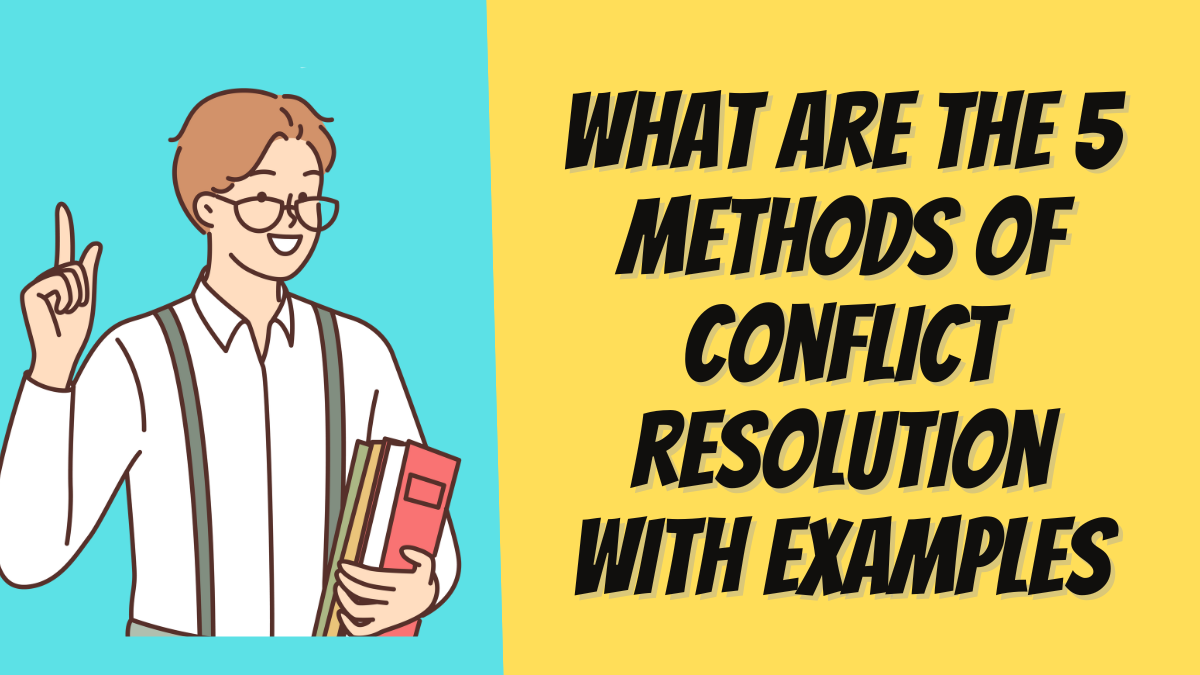Introduction
Hi there, fellow settler of disputes! Although resolving disputes is never easy, you shouldn’t worry since I’ve got you covered. I’ll go over five useful conflict resolution techniques in this blog post so you can handle difficult circumstances with ease.
Table of Contents
Understanding Conflict Resolution
The Swiss army knife of interpersonal interactions is conflict resolution. It all comes down to figuring out how to resolve conflicts amicably and in a way that benefits all parties. Having the ability to resolve conflicts, whether they arise from a fight with your partner, a disagreement at work, or a disagreement with a friend, is essential to keeping relationships positive.

The Five Methods
1. Communication
The foundation of conflict resolution is communication. It all comes down to being able to clearly and respectfully communicate your opinions, feelings, and concerns while remaining receptive to hearing the other person out. As an illustration, consider this:
Let’s say your roommate and you have been arguing about housework. Rather than allowing the conflict to fester, you two sit down and honestly discuss each other’s obligations and expectations. You may create a plan that benefits you both by finding common ground and attentively listening to each other.
2. Compromise
Discovering a middle ground is similar to the art of compromise. Each side must make a small concession in order to reach a compromise and come up with a solution that, for the most part, pleases everyone. This is how it operates:
Imagine that you and your friend are at odds over where to have supper. Rather than obstinately adhering to your individual tastes, you both decide to make a compromise and go to a restaurant that has menu items that you both like.
3. Collaboration
By promoting cooperation and innovative problem-solving, collaboration elevates conflict resolution. It involves cooperating to identify a win-win solution that is advantageous to all parties. Here’s an example:
There’s a disagreement among your colleagues on how to tackle a project. Instead of disagreeing, you decide to work together to generate ideas. By combining your knowledge and resources, you create a plan that surpasses everyone’s expectations.
4. Avoidance
Avoidance is sometimes the best course of action for small disputes that aren’t worth the effort, despite the fact that it may sound like brushing them under the rug. It all comes down to picking your battles carefully and knowing when to give up. As an illustration, consider this:
Political disagreements between you and your sibling frequently result in contentious debates. Rather than arguing all the time, you decide to just not talk about it and concentrate on what you have in common.
5. Assertion
Being calm and self-assured while advocating for yourself and your demands is the essence of assertiveness. It entails establishing boundaries, speaking up for yourself, and declining to be a doormat. This is how it operates:
It’s hard for you to present your ideas in meetings since your coworkers continually interrupt you. Rather than ignoring it, you confront them head-on and urge them to wait until you’re done speaking before continuing.
FAQ on Conflict Resolution

Q: What happens if the other person declines to participate?
A: You need to be patient and maintain your composure if the other individual refuses to cooperate. Seek to comprehend their viewpoint and establish a point of agreement. If everything else fails, think about going through a mediator or having an impartial third party assist in facilitating the discussion.
Q: Is confrontation inherently negative?
A: Not always! Conflicts can provide a chance for development and constructive transformation. It all depends on how you decide to tackle and handle the situation.
Q: How can I sharpen my ability to resolve conflicts?
A: It takes practice to get perfect! Seize every chance to engage in good communication, empathy, and active listening. To further improve your abilities, a plethora of books, seminars, and internet resources are offered.
Conclusion
A vital life skill, conflict resolution may help you move with grace and compassion through the highs and lows of relationships. You’ll be well-prepared to face any problem if you can grasp the five techniques described in this article and approach disagreements with an open mind and a willingness to compromise. Recall that the goal should be to find constructive solutions to conflict resolution rather than completely avoid it. Cheers to making resolutions!
If you love personal development and goal-setting, you can check our Website for useful information

